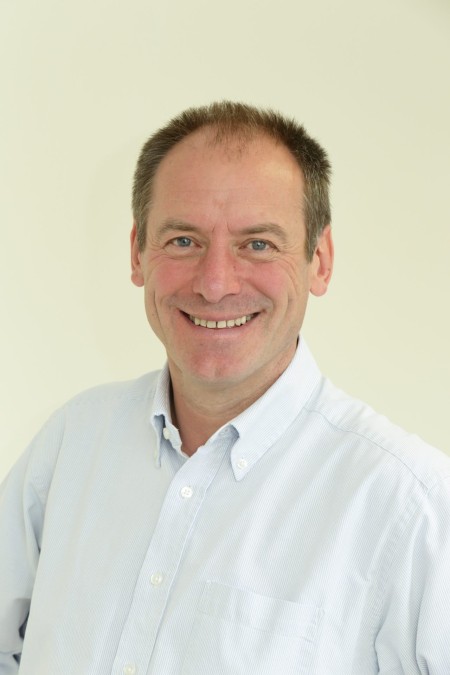Publish date: 18 June 2021
Professor Richard Walker shares more about his role as a consultant within our Parkinson’s service and explains the importance of research studies.

I started working at North Tyneside General Hospital in 1995 having just returned from conducting stroke research in Northern Tanzania.
The elderly care department was very small at that time with only five consultants and I was asked if I would like to set up a Parkinson’s service. There were very few multidisciplinary Parkinson’s services at that time in the country, and nothing in either North Tyneside or Northumberland.
Having established the service in North Tyneside we expanded throughout Northumberland. We are proud to provide a high quality, equitable and locally accessible service to all of our patients and have provided clinics in more than 12 different sites including Berwick and Haltwhistle.
Since 2014 I have also headed up a service for West Cumbria after the previous consultant there retired, providing all day clinics in Cockermouth once a month.
The Parkinson’s service includes other consultants who each cover different areas. I would describe our Parkinson’s nurse specialists as the backbone of our service – they help in the medical clinics, run nurse-led clinics, provide a dedicated helpline and also provide backup to ward teams and GPs.
Also vital to the team are our secretarial and administration staff, as well as our Allied Health Professionals. I can’t think of a disease that provides a better example of the need for a multidisciplinary team with all of the many problems that people with Parkinson’s can develop.
It has been a real challenge for us since the pandemic started and, like everyone else, we have had to find new ways of working, including using telephone or video appointments.
We have managed to maintain the service throughout with no extra clinic cancellations, although it has been particularly challenging ‘seeing’ new patients remotely. However, there are positives that we have learnt for the future such as the benefits of remote consultations for people with Parkinson’s in care homes, where there is minimal disruption for the patients and it is possible to speak to a member of the staff who knows the patient well.
The team is involved in numerous multicentre research studies relating to Parkinson’s, including one which may lead to trained sniffer dogs being able to help with diagnosis in the future. Diagnosis is based on clinical assessment and is sometimes quite challenging.
Over the years our patients have had the opportunity to participate in many drug studies, some of which have led to major therapeutic advances. We have also been heavily involved in our own research which has led to numerous papers being published over the years.
We have strong links with both Newcastle and Northumbria Universities – this includes a current study utilising a smartwatch with specially developed software to help people living with Parkinson’s. This is a fairly unique research project in that we are very much working with patients and carers to generate the research ideas in order to pursue functions that they would like to see used. One particular function relates to a vibration cue to remind people to swallow to prevent drooling problems.
I am the regional lead for Parkinson’s research within the comprehensive research network and also on national committees. I have been heavily involved with the Parkinson’s UK charity and am currently consultant lead for the UK Parkinson’s clinical excellence network. I was very honoured to be one of four consultants involved with the latest NICE guideline update on the management of Parkinson’s in 2017. This involved a lot of work but it was rewarding to be able to provide a clinician’s perspective on day to day management issues for people with Parkinson’s.
I have continued to maintain my interest in Africa and have been clinical lead for the trust link with Kilimanjaro Christian Medical Centre since its establishment in 1999. I have also conducted extensive clinical research relating to non-communicable diseases, including Parkinson’s, in Africa and was the inaugural chair of the International Movement Disorder Society African task force from 2012-2017. I am currently involved with a WHO working group relating to the care of Parkinson’s in low and middle income countries. I was very honoured to receive the Dr Rana International Parkinson’s community service award in 2019 from the World Parkinson’s Programme.
Despite the challenges it remains very rewarding to look after our patients, many of whom I have known for years. We do get to know both the patients and their families very well. What I usually say when I first diagnose people is “first the bad news, you’ve got Parkinson’s, but now the good news, because you’ve got Parkinson’s there is a lot that we can do to help you even though currently there is still not a cure.”
There is a great deal of research happening and I hope it is not too long before we find a disease modifying agent, or even better a cure. Finally, I am extremely grateful to have worked with some excellent colleagues in all disciplines over the years.
